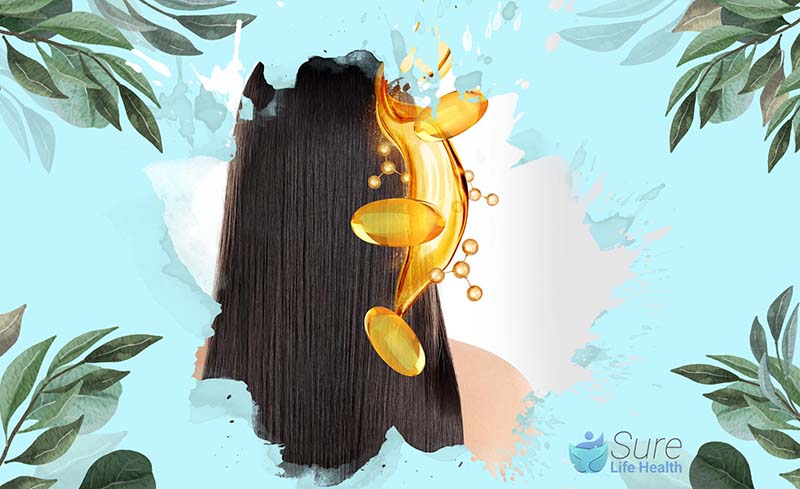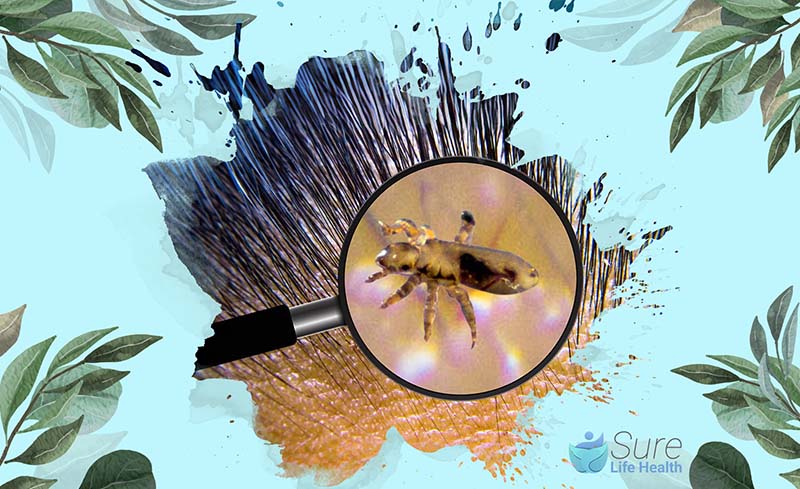Tea tree oil stands out as a potent ingredient in various hair care products, particularly shampoos, owing to its numerous benefits. When incorporated into hair care routines, tea tree oil contributes to both hair strength and scalp health.
Its applications range from addressing scalp residue to alleviating common issues like dandruff and head lice. Additionally, many wonder, “Does tea tree oil help with hair growth?” This is a key question we explore as we explore numerous benefits and applications of tea tree oil for hair care.
In this article, we not only examine whether tea tree oil promotes hair growth, but also offer guidance on effectively utilizing tea tree oil in hair washing routines and shed light on essential considerations for its home use.
Does Tea Tree Oil Help With Hair Growth?
Tea tree oil, also known as melaleuca oil, comes from the leaves of the Melaleuca alternifolia tree found in southeastern Australia. For hundreds of years, Australians have used this oil to heal cuts and wounds because it’s really good at killing germs and reducing swelling.
Dr. Rachel Westbay points out that tea tree oil is helpful for more than just wounds; it’s also great for clearing up acne, fighting fungus, and soothing itchy scalps. These days, you can find tea tree oil in its pure form as well as in many skin, makeup, and hair products.

Benefits of Using Tea Tree Oil on Your Hair
Relieves Irritation
An itchy and irritated scalp can be very uncomfortable. Tea tree oil, with its strong anti-inflammatory properties, can greatly help to soothe and calm this irritation, providing welcome relief.

Stimulates Hair Growth
Tea tree oil might not directly cause hair to grow, but it improves scalp health significantly. A healthy scalp can create a good environment for hair to grow.
Dr. Garshick explains that this indirect benefit could be valuable for those seeking natural ways to enhance hair growth.

Eradicates Head Lice
Tea tree oil is known for its strong cleaning properties, making it great for fighting head lice. A study showed that a mixture with just 1% tea tree oil got rid of all the head lice in just 30 minutes. This effect was better than that of nerolidol, a natural substance found in some other essential oils.
Moreover, mixing tea tree oil with lavender oil works even better. This combo not only cuts down the number of live lice but also kills the lice eggs. Using these two oils together offers a natural, chemical-free way to handle lice problems, and it’s gentler on the scalp.

Fights Dandruff
Dandruff often stems from a yeast-like fungus called Malassezia. Tea tree oil’s antifungal and antimicrobial traits help combat this cause of dandruff.
An older study highlighted that daily use of a shampoo with 5% tea tree oil reduced dandruff by 41% over four weeks.
Controls Oil Production
For those struggling with an oily scalp, tea tree oil can be a game changer. It helps balance the scalp’s oil production, allowing for longer intervals between hair washes.
Sabrina Ahmed, a curl expert at Garnier, highlights this as a key benefit.
Revitalizes Hair And Scalp
Tea tree oil is not only functional but also refreshing. It leaves the hair and scalp feeling refreshed and revitalized, with a pleasant scent, adds Ahmed.
Improves Overall Scalp Health
Healthy hair begins right at the scalp, and tea tree oil is a great choice for keeping your scalp clean and healthy. Tea tree oil fights germs, fungus, and reduces swelling, making it great for treating common scalp problems like dandruff and itchiness.
Dr. Janiene Luke, a skin expert in Loma Linda, CA, points out that these properties of tea tree oil help maintain a clean and healthy environment for your hair to grow.
How to Use Tea Tree Oil for Hair Growth
Tea tree oil is a popular choice for those seeking natural remedies, thanks to its safety profile when used topically with minimal risk of irritation. While there’s no universal guideline for tea tree oil products, which range from skincare to shampoos, here’s how to ensure you use it effectively:
- Follow the Manufacturer’s Instructions: Always follow the guidelines provided on the product packaging to get the best results.
- Conduct a Patch Test: Before full application, test a few drops on a small skin area to see how your body reacts. This helps to prevent any unexpected adverse reactions.
- Follow Recommended Dosage and Frequency: Use the oil as directed on the package in terms of amount and how often to apply it.
- Cease Use if Necessary: If you experience any signs of an allergic reaction or other negative effects, stop using the product immediately.
Although rare, some individuals might experience mild irritation or allergic reactions to tea tree oil. Moreover, while beneficial for certain oral health issues like gingivitis, tea tree oil is poisonous if ingested and has been linked to cases of poisoning in adults and children. Therefore, it is crucial to use products specifically formulated for oral use when considering it as a mouthwash.
Note: For enhanced benefits, consider mixing tea tree oil with a carrier oil like coconut or almond oil before application to your hair. This not only dilutes the tea tree oil to prevent potential irritation but also helps in evenly distributing the oil through your hair, maximizing its therapeutic effects.
Disadvantages of Using Tea Tree Oil for Hair
Tea tree oil might not be a magic cure-all. While it’s known to fight germs, it can also irritate some people’s skin, causing redness, itching, or dryness. If you experience any of these, stop using it right away.
For hair problems like dandruff, itchiness, or even hair loss, talk to a dermatologist first. Tea tree oil might not help with hair loss caused by things like immune system issues, hormone problems, or lack of certain nutrients in your diet. A dermatologist can help you figure out the root cause of your hair woes and recommend the best treatment.
Note: When using tea tree oil, it’s advisable to integrate it with other supportive treatments as recommended by a healthcare professional, especially for severe scalp conditions. This holistic approach can enhance overall scalp health and potentially improve hair condition.
How Often to Use Tea Tree Oil on Hair?
According to our experts, using tea tree oil directly on the scalp as a leave-in treatment should be limited to three times per week when mixed with a carrier oil.
However, shampoos and conditioners containing tea tree oil can be incorporated into your daily hair care routine or used in accordance with your regular washing schedule. It’s essential to follow the specific instructions provided with any serum or scalp oil product to determine the optimal frequency of use.
Note: Tea tree oil is potent, so using it excessively can lead to irritation or dryness. Always dilute it properly with a carrier oil before direct application to the scalp.
Conclusion
Tea tree oil is a potent essential oil renowned for its therapeutic properties in treating various skin concerns and infections. It is a crucial ingredient in many shampoos, favored for its antibacterial and antifungal abilities, which effectively combat dandruff and head lice. It also offers relief from the itching associated with scalp eczema.
While it’s clear that tea tree oil maintains a healthy scalp, the question remains, “Does tea tree oil help with hair growth?” Research in this specific area is still developing, yet the oil’s overall benefits for scalp health suggest it could indirectly support hair growth.
Given its concentrated nature, always conduct a patch test before applying tea tree oil directly to your scalp. If you experience any adverse reactions, consulting with a healthcare provider is advised to ensure its safe usage. This careful approach can optimize the benefits of tea tree oil in your hair care regimen, potentially enhancing both scalp and hair health.
For those seeking more information and honest product reviews, I recommend visiting HealthCareConnect.

Dr. Joyce Slater: Your Guide to Informed Health Choices
Dr. Joyce Slater shines as a distinguished expert in the field of nutrition and public health. Contributing her vast expertise to HealthConnectbc, she embodies a deep-seated passion for enhancing public well-being. As a respected figure in her field. Dr. Slater’s academic journey and professional achievements are nothing short of inspirational.
Holding a significant position as a researcher and educator, Dr. Slater has delved deeply into the intricacies of food literacy and nutritional science. Her work, prominently featured in numerous esteemed scientific publications, underscores her dedication to expanding our understanding of food’s role in health and society.
At the heart of Dr. Slater’s professional ethos is a profound desire to positively impact individual lives through education and research. She often says, “Empowering people with the knowledge to make healthier choices is the most rewarding aspect of my work.” This principle is the cornerstone of her involvement with HealthConnectbc, where she strives to provide reliable and practical health advice.
Dr. Slater’s contributions to HealthConnectbc are multifaceted: academically, she offers insights into the complex world of nutrition and health, enhancing both public understanding and professional practices. Additionally, she is instrumental in guiding and inspiring the next generation of health professionals, thus fostering future excellence in the field.
Juggling rigorous research with her educational duties, Dr. Slater demonstrates an unwavering commitment to her profession. Her approachable nature and genuine concern transcend the confines of academia, touching the lives of everyone she interacts with. Dr. Slater looks forward to continuing her journey of discovery and education, dedicated to the ongoing improvement of public health and nutrition.
At HealthConnectbc, Dr. J. Slater is not just a contributor; she is a guiding light, dedicated to enlightening and motivating individuals towards a healthier and more informed lifestyle.
PUBLISHED ARTICLES
- Food literacy competencies: A conceptual framework for youth transitioning to adulthood (2018)
- Self-perceived eating habits and food skills of Canadians (2016)
- Challenges to acquiring and utilizing food literacy: Perceptions of young Canadian adults (2016)
- Socio-demographic and geographic analysis of overweight and obesity in Canadian adults (2009)
- Sustainable well-being: Concepts, issues, and educational practices (2014)

